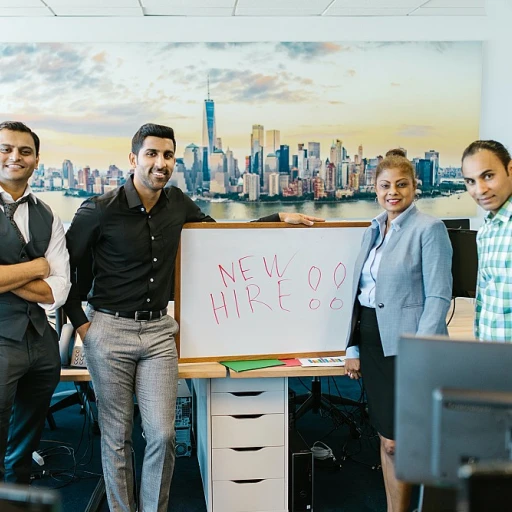
Navigating the Legal Landscape
Navigating the Complex Employment Legalities
Understanding the legal framework for employment in South Korea is crucial for businesses aiming to hire locally through an Employer of Record (EOR). South Korea’s labor laws are complex and encompass various aspects such as social security, health insurance, and working conditions, which include working hours and minimum wage regulations. South Korean employers must adhere to specific employment contracts, which detail terms like severance pay and paid leave. As an EOR, navigating these labor laws ensures compliance with South Korea’s strict employment regulations. Additionally, there are certain benefits and protections that employees in South Korea are entitled to, such as employment insurance and the national pension scheme. Employers must also handle payroll accurately, considering income tax and other deductions like employment and health insurance. Navigating these legalities can be challenging without the informed guidance of an EOR. This process is further detailed in our analysis of the benefits of Vivahr in recruitment process outsourcing, which provides a comprehensive look at how choosing the right partner can simplify the complexities involved in staying compliant in South Korea.Benefits of Using an Employer of Record
Maximizing Advantages through Professional Intermediaries
Utilizing an Employer of Record (EOR) in South Korea significantly streamlines HR processes for international companies. One of the key benefits is simplifying the hiring of employees in compliance with local labor laws and regulations, which ensures that companies remain compliant with South Korean employment standards. EORs manage employment contracts, observe local labor statutes, and ensure adherence to minimum wage regulations and mandatory working hours commitments. Furthermore, these professional intermediaries carry the burden of administrative tasks such as payroll processing and withholding the appropriate income tax. This service lifts a substantial responsibility from employers, allowing them to concentrate on strategic business activities. The EOR ensures precise calculation of severance pay, aligns with the national pension requirements, and manages social security and employment insurance registrations. For companies expanding in South Korea, leveraging EOR services offers the benefit of providing employees with employment packages that are on par with those of local employers. EORs typically handle health insurance and paid leave benefits, assuring employees of a secure work environment and enhancing overall job satisfaction. Moreover, these organizations are crucial in maintaining compliance with benefits regulations, including paid leave entitlements and other forms of employment insurance. It is the EOR’s duty to ensure workers are entitled to receive the full spectrum of benefits as required by Korean labor laws. In today's dynamic job market, integrating an EOR into your international strategy is a practical move, especially for companies new to the South Korean market. By delegating these responsibilities to a specialist service provider, businesses not only ensure legal compliance but also foster a positive working relationship with their employees. Explore more about how telesales outsourcing can amplify business efficiencies here.Challenges in Recruitment Process Outsourcing
Overcoming Hurdles in Employment Solutions
Navigating the realm of recruitment process outsourcing in South Korea can pose several challenges for companies seeking to streamline their hiring practices. Unlike traditional employment methods, outsourcing introduces unique complexities that require businesses to adapt and innovate in response to local labor laws and cultural norms. One major challenge is understanding and complying with the intricate Korean labor laws that govern employment contracts, working hours, and minimum wage obligations. It is imperative to adhere to these regulations to avoid legal repercussions and ensure fair treatment of employees. Employers must also grapple with the complexities of managing payroll and taxes, which involves dealing with issues like income tax, national pension contributions, and ensuring accurate calculation of severance pay. Navigating these elements can be cumbersome without expert guidance. The South Korean employment landscape is further complicated by specific requirements for employment insurance and social security. Understanding how these benefit systems integrate with employee entitlements is crucial for companies utilizing recruitment process outsourcing. Cultural considerations also play a significant role. Employers must be sensitive to cultural nuances and working practices in Korea, such as employees being entitled to certain paid leave days and health insurance benefits. To successfully address these challenges, many organizations choose to partner with a local Employer of Record (EOR) service. An EOR can offer invaluable insights and resources to ensure compliance with laws and streamline the recruitment process. Despite these hurdles, the prospects for using recruitment process outsourcing in South Korea remain promising, especially as companies continue to focus on improving efficiencies and employee satisfaction. For more insights on overcoming challenges in recruitment outsourcing, you might find this understanding of supply chain management insightful.Selecting the Right Employer of Record
Key Considerations for Selecting an EOR
Embarking on the journey of recruitment process outsourcing (RPO) in South Korea involves several layers of consideration, especially when selecting the right Employer of Record (EOR) to partner with. The decision can significantly impact not only the compliance and effectiveness of your hiring processes, but also how your employees experience their employment. An EOR will handle a myriad of responsibilities, including managing employment contracts, payroll, tax compliance, and ensuring alignment with the ever-evolving Korean labor laws. It is crucial to evaluate how an EOR navigates these complexities to safeguard your company’s interests.- Compliance with Legal Standards: One critical aspect is ensuring the EOR's understanding and management of Korean labor laws, including the various intricacies of employee rights such as working hours, minimum wage, paid leave, and severance pay. Compliance with local employment regulations is non-negotiable and a good EOR should keep up with changes in legislation both preemptively and responsively.
- Comprehensive Employee Benefits: Beyond legal compliance, assess whether the EOR provides comprehensive benefits packages for your employees, such as health insurance, employment insurance, and access to the national pension scheme. These should align with or surpass industry standards to enhance the attractiveness of your workplace.
- Expertise in Payroll and Tax Management: The efficiency with which an EOR manages payroll and taxes can neither be overlooked. Accurate and timely payroll services, including the management of income tax and social security contributions, form the backbone of operational stability and employee satisfaction.
- Experience and Reputation: Trustworthy EORs will have a solid track record and positive reputation in the industry. Past experiences and reviews can provide insights into their reliability and nature of service delivery.
- Cultural and Professional Fit: Finally, ensure that the EOR aligns with your company’s culture and values. The relationship should be symbiotic, reflecting mutual understanding and goals.
Impact on Employee Experience
Influence on Employee Satisfaction and Experience
The role of an Employer of Record (EOR) in South Korea significantly affects the experience and satisfaction of employees across various dimensions. The intricate understanding of Korean labor laws combined with the ability to streamline payroll and taxation processes facilitates a smoother integration of employees into their roles.
Employees benefit from the EOR's assurance of compliance with local South Korean labor regulations. They ensure that each employee is promptly entitled to statutory benefits, including health insurance and national pension, which is vital for building trust between the employer and the workforce. This compliance is pivotal as it resonates closely with the well-being of employees in terms of offering consistent and legitimate employment contracts.
- Seamless Management of Payroll and Benefits: By managing payroll accurately while maintaining adherence to income tax laws and social security, EORs relieve the company of administrative burdens, thereby ensuring timely salaries and benefits. This setup aids in reducing any delays in paid leave or severance pay, enhancing employee satisfaction.
- Comprehensive Coverage: EORs provide complete coverage when it comes to employment insurance, thereby making sure employees feel secure about their employment tenure. They also handle the complexities surrounding the provision of statutory days off and minimum wage compliance.
By fostering a sense of security and reliability, EORs play a crucial part in promoting a positive work environment. Frequent interaction between the employee and the EOR ensures any employment-related issues are promptly addressed, contributing to the overall employee morale and retention.
Ultimately, the presence of a proficient EOR can distinguish an organization's ability to leverage skilled labor effectively, ensuring smooth operational flow and employee satisfaction. This approach not only provides immediate benefits but lays a strong foundation for long-term engagement and career growth, essential in today's competitive employment landscape.













